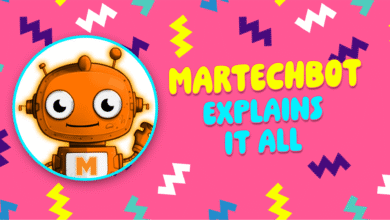1 Million AI Customer Chats Reveal a Surprising Insight

▼ Summary
– Salesforce launched AI agents on its Help site in October 2024, handling over one million customer conversations and offering multilingual support at scale.
– Effective AI agents rely on high-quality, diverse content, including structured and unstructured data, to provide accurate and context-aware responses.
– Salesforce emphasizes the need for AI agents to balance intelligence with empathy, ensuring they deliver emotionally intelligent and personalized service.
– The integration of structured and unstructured data via zero-copy networks enables AI agents to offer proactive, personalized, and efficient customer support.
– Salesforce adjusted its approach to prioritize human connections, increasing the hand-off rate to 4% to ensure empathy and trust in critical situations.
Salesforce’s analysis of one million AI-powered customer interactions has uncovered game-changing insights about what truly makes digital support effective. The company’s AI agents, deployed across its Salesforce Help platform, handle everything from routine technical questions to unexpected requests like answering in hip-hop lyrics. This massive dataset reveals that successful AI customer service requires both technical precision and human-like empathy – a combination that transforms digital interactions into meaningful experiences.
Quality content forms the backbone of effective AI support systems. Without accurate, up-to-date information, even the most advanced AI becomes unreliable. Salesforce’s agents draw from over 740,000 structured and unstructured data sources, including knowledge articles, customer interaction logs, and community discussions. However, the company quickly discovered that not all content was AI-ready, some materials were outdated or inconsistent. To address this, Salesforce implemented continuous content reviews, leveraging human experts to refine and update resources regularly.
The real breakthrough comes from blending structured and unstructured data. Structured data, like CRM records and transaction histories, helps personalize responses, while unstructured data, such as forum discussions and internal memos, provides contextual depth. Salesforce’s zero-copy network integrates these sources seamlessly, eliminating data silos and ensuring AI agents have a complete view of customer needs. This approach enables AI to move beyond scripted answers, delivering personalized, proactive solutions that anticipate customer concerns before they escalate.
Beyond intelligence, AI must also demonstrate emotional awareness. Early versions of Salesforce’s AI prioritized efficiency, keeping human hand-off rates as low as 1%. But customer feedback revealed a critical flaw, people still wanted human connections in high-stakes situations. The company adjusted its approach, raising hand-off rates to 4% and training AI to lead with empathy. In outage scenarios, for example, agents now begin by acknowledging frustration before offering solutions, mirroring the best practices of human support teams.
Three key lessons emerged from Salesforce’s AI deployment:
- Content quality and variety are non-negotiable – AI is only as good as the data it accesses.
- AI must continuously learn and adapt – Static knowledge bases lead to stagnant service.
- Empathy is just as important as accuracy – Customers remember how an interaction feels, not just the solution provided.
The journey toward AI-powered customer service is ongoing, but the results speak for themselves. By balancing cutting-edge technology with human-centered design, businesses can create support experiences that are not just efficient, but genuinely satisfying. The future of customer service isn’t about replacing humans, it’s about enhancing their capabilities with AI that understands both data and emotions.
(Source: zdnet)





